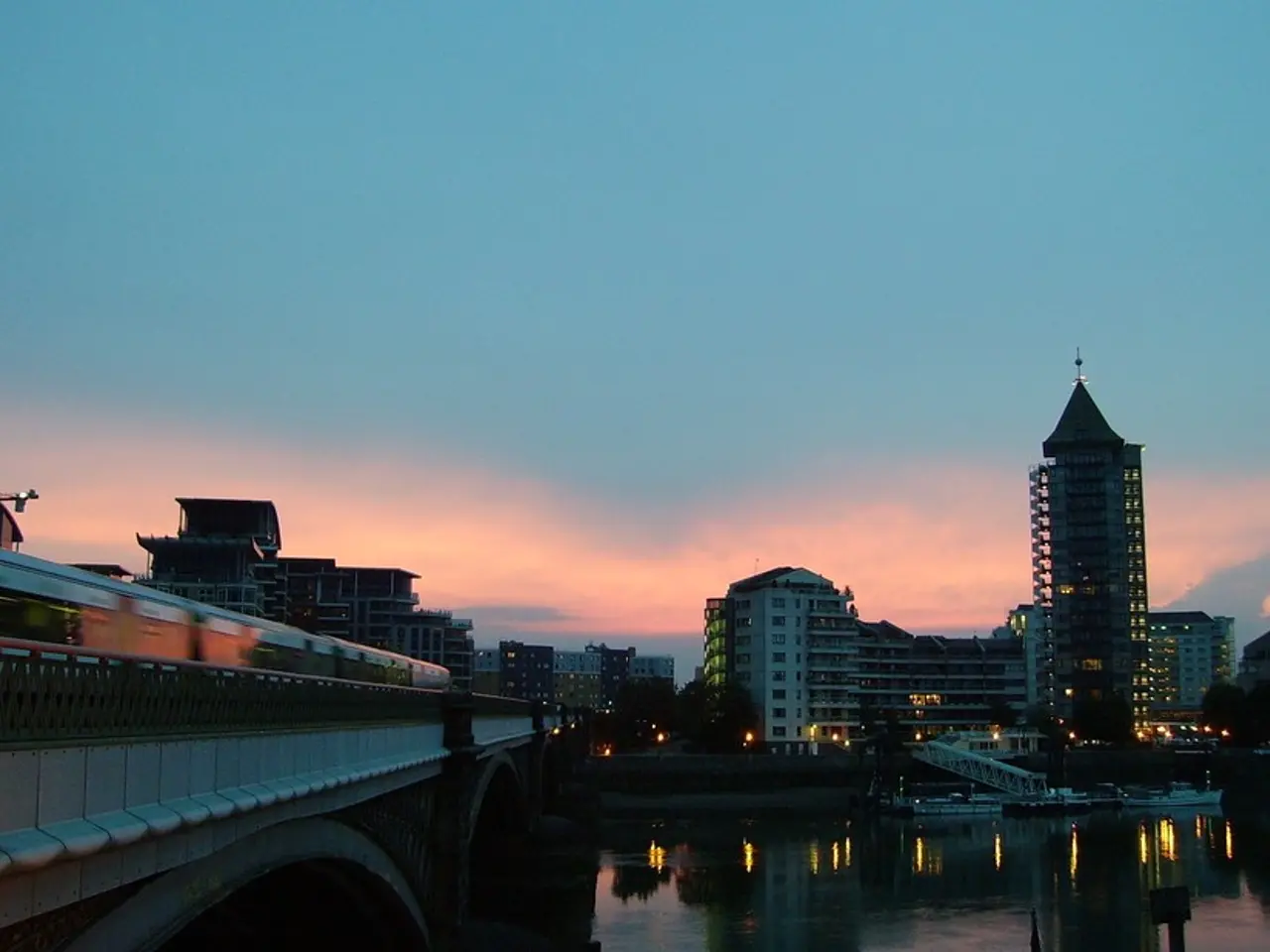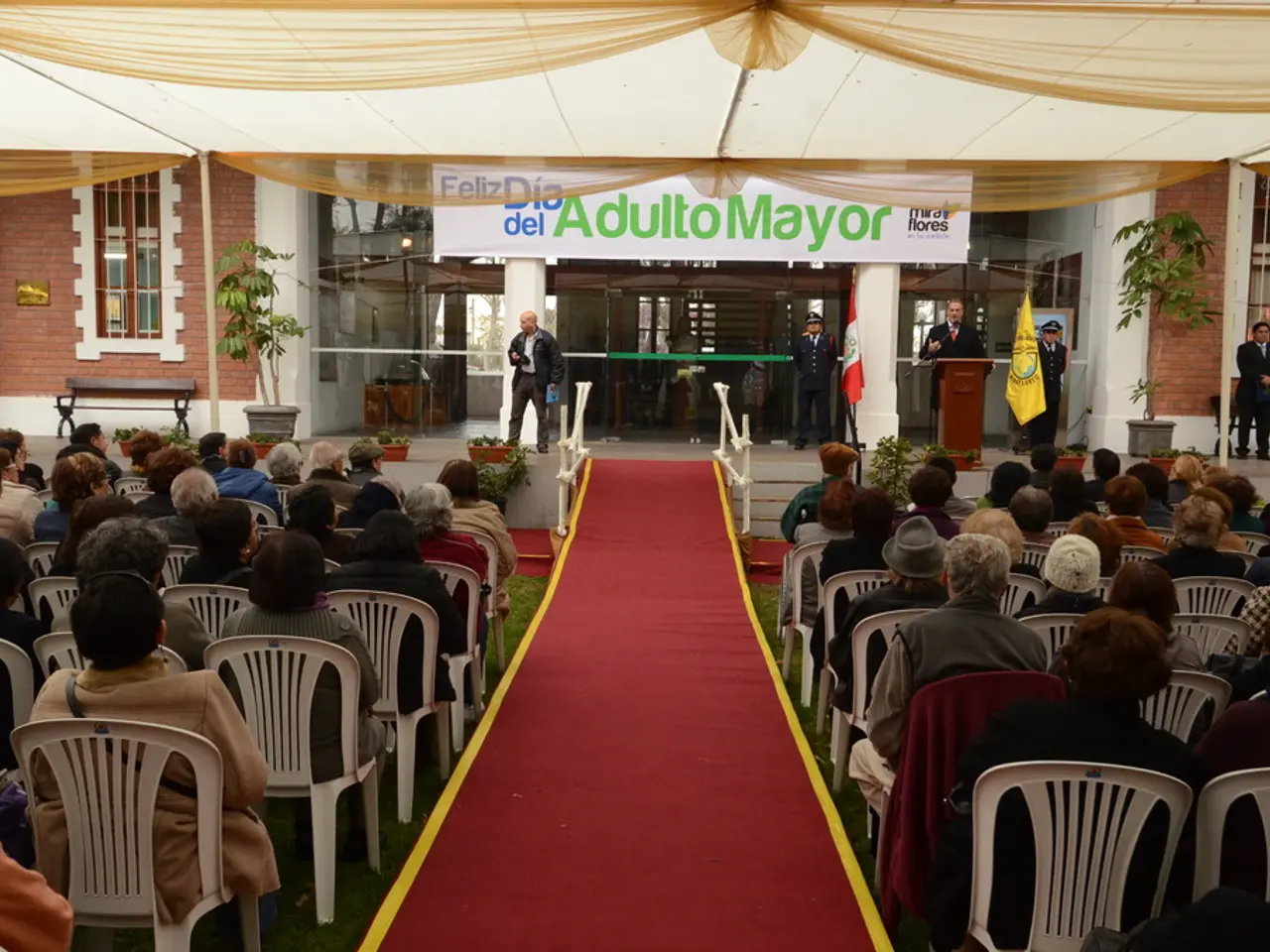CDU Advocates for a River Swim in Hamburg
In the heart of Germany, Hamburg is renowned for its vibrant urban living and innovative urban development. However, one aspect that has been missing from the city's landscape is easy access to water for swimming and recreation. Anke Frieling, urban development spokeswoman for the CDU, has been advocating for a change, urging the city to make Hamburg's waters accessible for bathing, swimming, and enjoyment [1].
The CDU in Hamburg's Parliament has proposed the idea of a river bath in the Alster or Elbe. This suggestion comes as a response to the growing need for improved urban living quality and innovative urban development. However, the authority responsible for urban development has assessed that the integration of swimming possibilities in waters used for harbor purposes is not possible due to safety and water quality concerns [1].
Frieling criticizes the Senate for ignoring the fact that challenges related to financing, safety, hygiene, and water quality have been addressed in other cities like Copenhagen, Oslo, and Malmö. These Scandinavian cities have successfully implemented river bathing by overcoming water quality and safety concerns through advanced filtration systems, safety measures, and architectural designs tailored to their urban waterways [1].
Copenhagen, for instance, established public river baths with water filtration and circulation systems to maintain high water quality despite urban pollution. Oslo has promoted urban bathing by monitoring and improving water cleanliness and ensuring safe access points. Malmö uses a combination of natural water purification and infrastructure adaptations to facilitate safe river or harbor bathing [1].
Hamburg, however, faces challenges with the Elbe and Alster rivers related to tidal flows, port traffic, and designation as federal waterways that complicate the water quality and safety needed for swimming. The Senate acknowledges these challenges, but Frieling argues that Hamburg could use similar filtration technologies, safety concepts, and architectural solutions as those cities have done to create river swimming spots [1].
The main creative solutions involve installing filtration and water treatment systems to ensure swimmer safety, designing architectural features like enclosed river pools or separated bathing areas to protect swimmers from traffic and strong currents, and implementing comprehensive safety protocols including life guards and controlled access [1].
These measures have allowed Copenhagen, Oslo, and Malmö to successfully integrate river baths despite urban and environmental constraints, offering a model Hamburg could follow with appropriate investment and planning [1]. However, the Senate does not plan any new tests or feasibility studies for river baths, a decision that Frieling is not satisfied with.
Frieling warns that Hamburg is wasting its potential by not pursuing river baths. She questions the inability to integrate swimming possibilities in harbor basins in Hafencity, where new high-rise buildings are being constructed. Frieling asserts that Hamburg's urban living quality and innovative urban development require more water access [1].
[1] Source: CDU Parliamentary Request "Urban development by the water - new perspectives for Hamburg's water areas"
- Anke Frieling, from the CDU, criticizes the Hamburg Senate for not considering solutions similar to those in Copenhagen, Oslo, and Malmö, such as filtration systems, safety measures, and architectural designs, to make Hamburg's Alster or Elbe rivers accessible for bathing, swimming, and enjoyment.
- Frieling argues that Hamburg's Urban Development policies and legislation should prioritize the creation of river swimming spots, citing examples like Copenhagen, Oslo, and Malmö, who have successfully integrated river bathing despite urban and environmental constraints, thereby enhancing their urban living quality and innovation.







